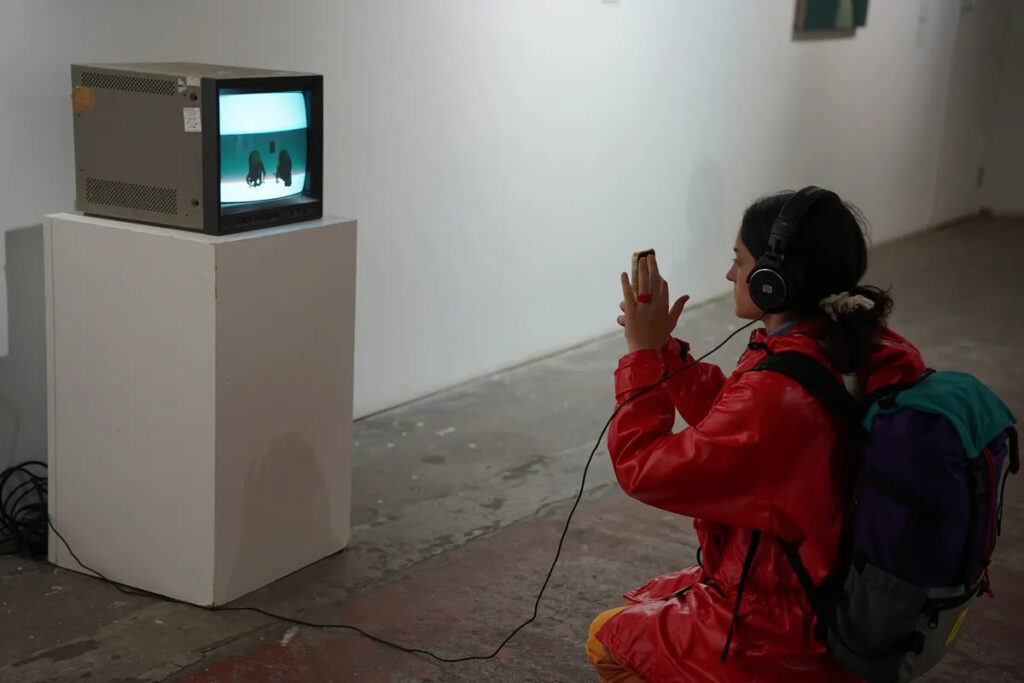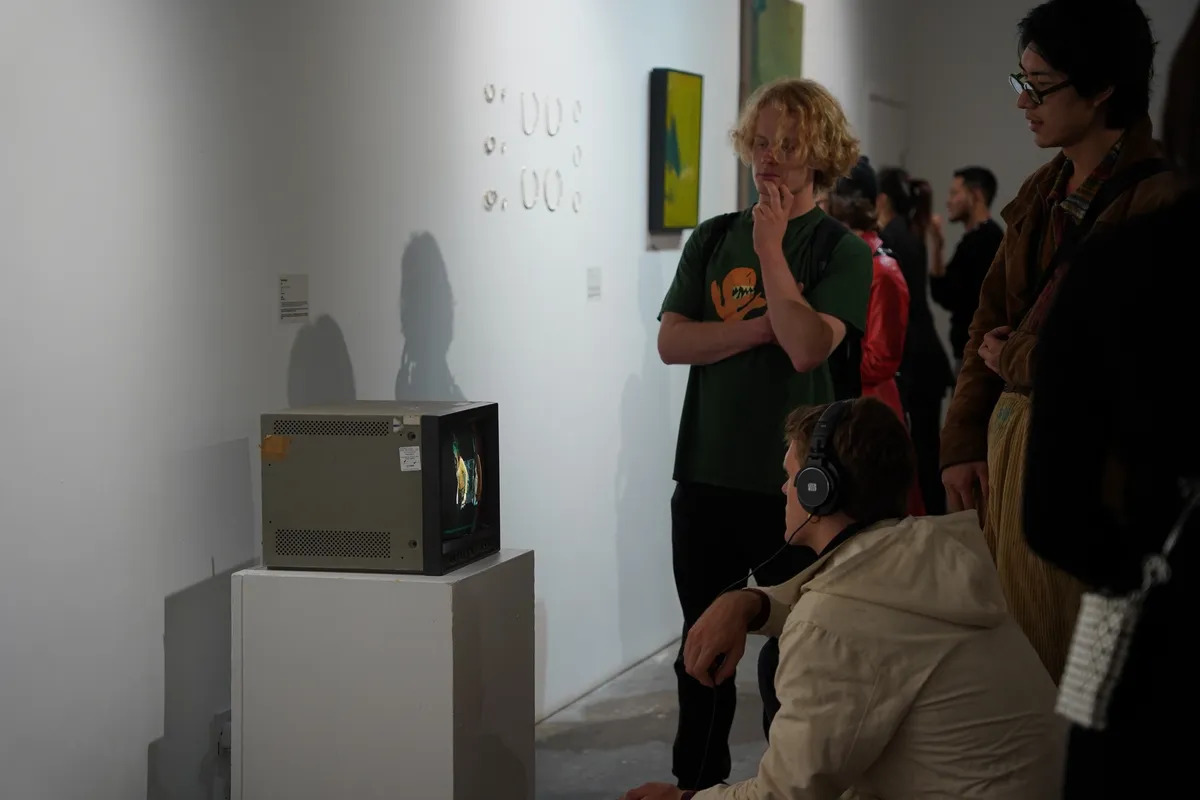Listen in on Nettle and Rosie Ming’s Nature & Art Talk at SE London’s Cherished Telegraph Hill.
Perched on a Telegraph Hill Park bench in Southeast London, Nettle joined the company of moving-image artist Rosie Ming. Against the backdrop of London’s skyline and the looming London Eye, we momentarily escape the urban hustle to delve into a conversation about nature and the arts. A playful dog is enjoying a game of fetch nearby, a bird serenades with gusto, and Rosie’s hair dances in the wind as she shares insights into her life experiences and artistic vision.
Rosie Ming’s artistic journey is deeply entwined with feminism, drawing profound inspiration from her roots in Dalian, the northeastern part of China. The beauty of her childhood city, embraced by expansive mountains and the sea, has woven itself into Rosie’s heart and soul. This intrinsic connection to nature echoes through Rosie’s art, giving it a romantic essence.
Rosie has a personal belief that her work cannot be without the feminist muse. She wants to see the world and her art through the female lens, envisioning a divinely feminine world where humanity and nature coexist harmoniously and peacefully. One of Rosie’s feminist projects is “Witchcraft Unveiled: Revealing Ordinary Women,” where she reevaluates the historical importance of witch hunts and their influence on the evolution of capitalist societies. This study offers a thorough examination of the shifting perceptions of witches throughout history. Rosie is an artist who is sensitive to her environment and her imagination shines through and in her latest piece ‘Symbiosis’ she envisions an alternate reality that hits a little closer to home.
Photograph: Taken by Anna French
In describing ‘Symbiosis,’ a moving-image piece, Rosie shares, “It’s the inner monologue of a hybrid creature between humans and plants in the future. I aimed to convey a clear sense of monologue through sound, subtitles, and settings.”
Donna Haraway, an American biologist, and feminist, plays a pivotal role in inspiring Rosie’s integration of nature into her art. “With my latest piece ‘Symbiosis’ I reconstructed a new identity and relationship, took a utopian perspective on the future of human and plant habitats and used technology to critique the irreversible impact humans have had on the earth’s land during the Anthropocene era,” says Rosie, as she tucks a lock of wind-swept hair behind her ear.
The term Anthropocene reflects the most recent period in Earth’s history when human activity started to have a significant impact on the planet’s climate and ecosystems. This piece reflects on how human activities have hugely impacted our world. It asks the question: What is the cost of humanity’s irreversible impact on our Earth?
Rosie responds, reflecting on art as a powerful tool for communication and reflection for humanity.

Photograph: Provided by Rosie Min
“I try to create a new narrative because I think the traditional narrative often has some issues that are not very inclusive,” she says. “I create new narratives to allow people to think about the future as well as the present and the connection with how our current human activities will impact our future.”
Rosie is a peaceful person and feels most at home in the countryside, surrounded by nature. As she moves to establish herself as a student and artist navigating life in London, she reflects on the big city’s pressures.
“There’s a lot of tall buildings blocking sunlight and with the traffic and construction occurring I noticed lots of noisy sounds,” she says. “In the city I always think it’s difficult for us to connect with nature. I really want to live in the countryside. I feel a lot of pressure with the city lifestyle.”
When Rosie considers her relaxation methods to help unwind, she explains. “For me, I often take the train to get away from the city to find “nature.” When I am busy, meditation/impromptu movement also allows me to connect with the ground and forget about the hustle for a while.”
In the city’s relentless pulse, Rosie Ming’s art weaves a tale of feminism, nature, and reflection. ‘Symbiosis’ echoes her vision of a harmonious future, yet amid urban pressures, she yearns for the tranquility of the countryside. In the dance between city chaos and rural serenity, Rosie Ming becomes a symbol of the universal quest for balance in a rapidly evolving world.
